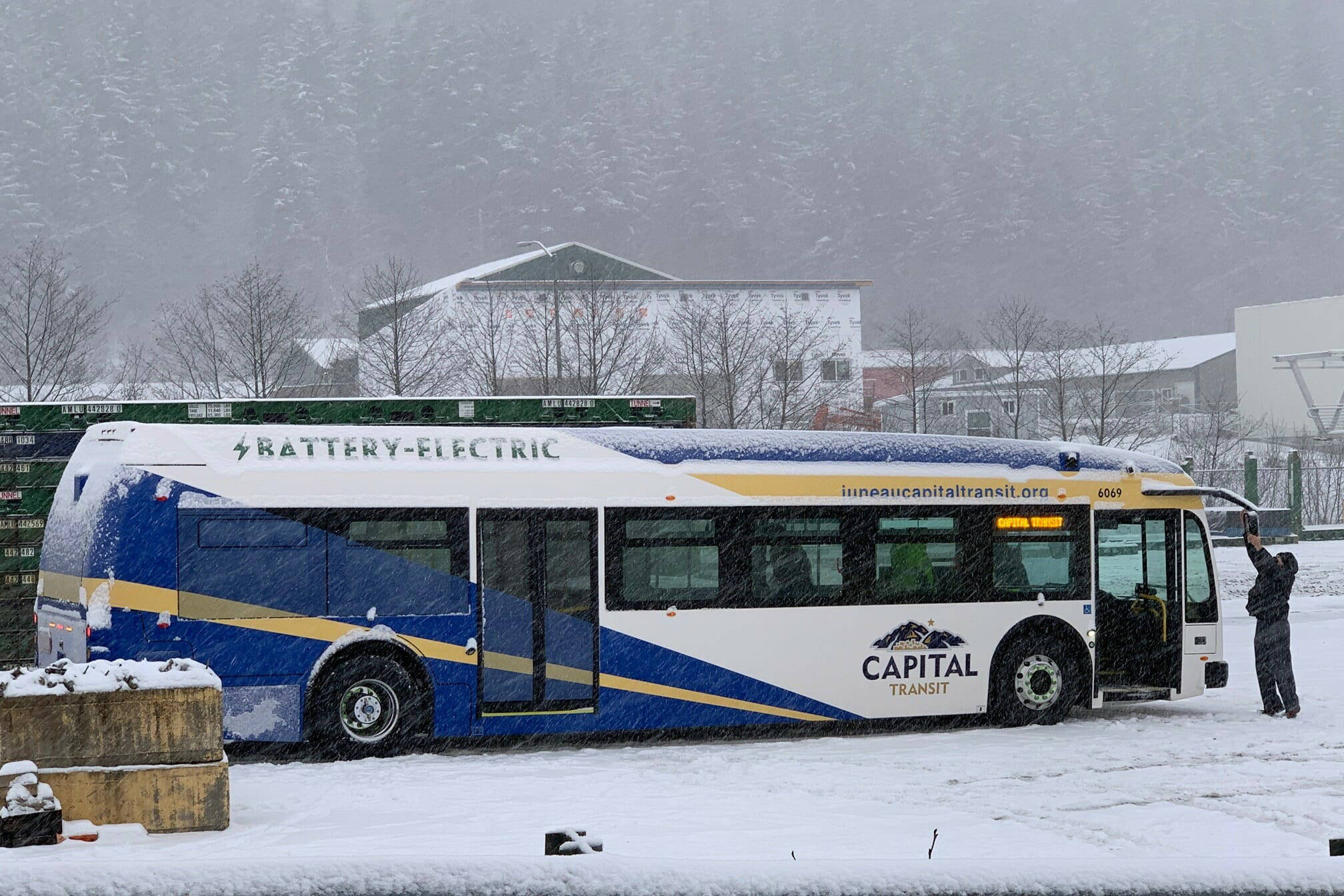City and Borough of Juneau’s first electric bus slated for Capital Transit arrived Wednesday, the city announced.
The bus is expected to be ready for the public to ride in February, the city said in a news release. The bus will be the first public transit electric bus owned by a transit company in the state, according to City and Borough of Juneau.
Renewable energy advocates hope the bus, a 40-foot model built in California by Proterra is a precedent of things to come.
“I think it’s very exciting. The first, we hope, of many that are coming and changing our entire bus fleet and making us a more renewable energy-powered community,” said Margo Waring, president of Renewable Juneau, a local nonprofit, in a phone interview. “It will lower maintenance and operational costs. The benefit for the city, riders and residents is cleaner air and lower taxes. That’s the benefit of renewable energy. It’s a win-win.”
The bus will enter regular service once operators and maintenance crews are more familiar with how to drive and support the new bus, said Denise Guizio, administrative assistant with Capital Transit.
[Juneau health care worker first in U.S. to show adverse reaction to COVID-19 vaccine]
“They’ll come up and teach the operators how to use the equipment,” Guizio said in a phone interview. “It’s a new type of technology for us so we want to make sure our operators and maintenance staff know how to properly use it and maintain it.”
The bus, which seats around 40, is slightly larger than other buses in the fleet, Guizio said. This limits it from certain routes, but offers offsetting considerations. Follow-on busses will all be 35 feet, Guizio said. The acquisition process has taken several year as CBJ has applied for low-no emission grants to fund the purchase and searched for vendors for this new breed of vehicle, Guizio said.
“One thing we added to it was a diesel heater to make sure the bus is warm enough, and it can charge the battery. Proterra offered us the 40 foot bus at the same price as the 35 foot bus,” Guizio said. “Putting it on the (Mendenhall) Valley route is not a bad thing because that’s a more popular route.”
Waring said she hopes the changeover to electric-based fleets doesn’t end with Capital Transit.
“There’s the start of conversion of bus fleets in lots of places. That’s why the delay is so long while people ramp up production of bus order,” Waring said. “We have advocated with CBJ to convert the CBJ vehicle fleet to electric vehicles. The cars are quite available now. There’s a similar problem with light utility vehicles as plants convert.”
Low-no emission vehicle grants helped fund this first purchase, and further grants will help fund more vehicles. Waring hopes that those grants will replace vehicles that age out of service.
“As the older vehicles reach retirement age our hope is that they’ll be replaced with electric vehicles,” Waring said. “Cost savings in operations and maintenance is good for those of us who pay CBJ.”
In addition to environmental concerns, Waring hopes that the potential future replacement of school busses with electric vehicles will reduce cases of respiratory illness in children caused by diesel exhaust.
“We’re very fortunate,” Waring said. “It means we can make ourselves a more resilient community and do our bit with global warming and live up to our desires for a better future for all of us.”
• Contact reporter Michael S. Lockett at (757) 621-1197 or mlockett@juneauempire.com.

